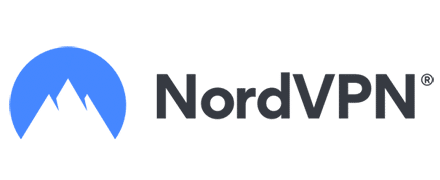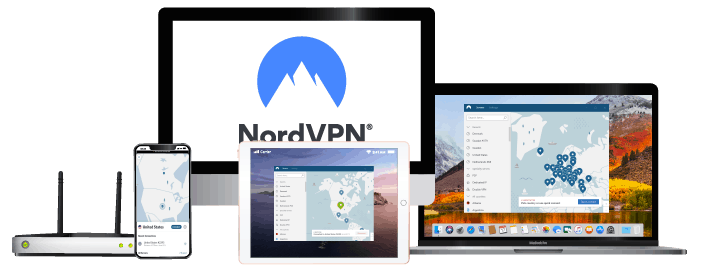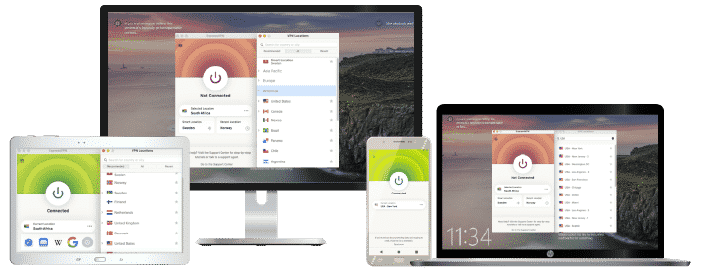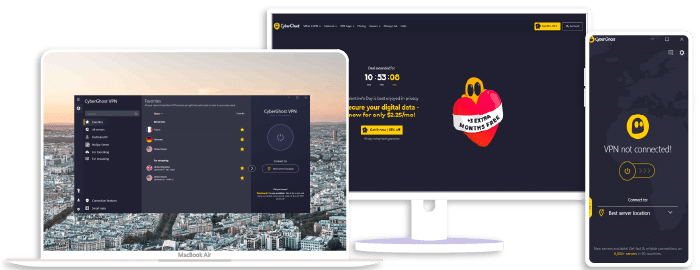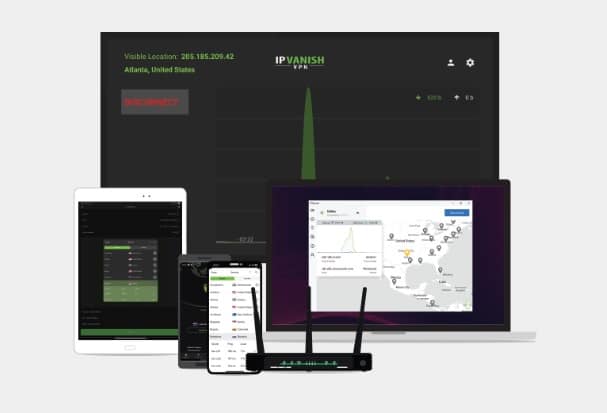The Pros and Cons of VPNs for Enterprises
In the tech-savvy world of today, cybersecurity is a concern that’s often at the forefront of enterprise operations. As enterprises continue to shift their operations online, I’ve noticed a growing trend towards using Virtual Private Networks (VPN). Some popular choices among enterprises include ExpressVPN, NordVPN, and Surfshark. These VPNs offer an added layer of security by encrypting internet traffic and hiding IP addresses.
However, like any technology tool, VPNs aren’t without their challenges. It’s crucial to weigh the pros and cons before integrating them into your business strategy. While they provide better security and remote access, there can be issues related to speed and compatibility.
So let’s dive deeper into understanding the advantages and disadvantages of using VPNs for businesses. In this article, I’ll share my insights about various aspects such as improved security, potential performance issues, cost considerations, and more.
NordVPN
Overall score: 9.6
- Incredibly fast servers
- Great security features
- Verified no-logs policy
- Unblocks streaming platforms
30-Day Money-Back Guarantee!
ExpressVPN
Overall score: 9.8
- Super-fast servers
- AES 256-bit encryption
- Supports private protocol, Lightway
- Money-back guarantee
30-Day Money-Back Guarantee!
Surfshark
Overall score: 9.5
- Allows unlimited simultaneous connections
- Integrates Stealth mode
- Multihop feature available
- 3,000+ servers
30-Day Money-Back Guarantee!
CyberGhost
Overall score: 8.8
- 45-day money-back guarantee
- 7,000+ reliable servers
- Strict no-log policy
- Tough security features
30-Day Money-Back Guarantee!
IPVanish
Overall score: 9.4
- Speedy servers
- AES 256-bit encryption
- Offers a 7-day free trial
- Unblocks restricted platforms with ease
30-Day Money-Back Guarantee!
Understanding VPNs: The Basics
I’ll kick off by defining what a Virtual Private Network (VPN) is. It’s essentially a service allowing you to securely connect to the internet, maintaining your online privacy and protecting sensitive data. Among the top contenders in this domain are ExpressVPN, NordVPN, and Surfshark.
How do VPNs work? They create an encrypted tunnel between your device and a server in another location. Your data passes through this tunnel, making it hard for hackers, advertisers, or even your Internet Service Provider (ISP) to see what you’re doing online.
Three key players dominate the market:
- ExpressVPN: It’s renowned for its robust security features and impressive speeds.
- NordVPN: This provider stands out with its advanced security measures and large server network.
- Surfshark: Known for its budget-friendly plans without compromising on security or speed.
Now let’s delve into why businesses use VPNs. Primarily, they offer enhanced security when staff members access company resources remotely – an increasingly common scenario given today’s flexible work styles. Additionally, VPNs allow employees to safely use public Wi-Fi networks while traveling or working in public spaces.
A crucial benefit of using a VPN is that it can help enterprises secure their data transmission processes and protect sensitive information from potential cyber threats. Furthermore, they’re handy tools for bypassing geo-restrictions – beneficial if you have international clients or remote teams across different regions.
However, there are also drawbacks to consider before integrating a VPN into your business operations:
- Performance issues: Depending upon the distance between servers, users might experience slower internet speeds.
- Compatibility problems: There could be compatibility issues with certain websites or services when using a VPN.
- Cost: While there are many affordable options like Surfshark out there, implementing enterprise-level solutions may bring significant costs.
In conclusion, understanding these basics about VPNs is critical before deciding which one suits your business needs best – whether it’s ExpressVPN’s speed prowess NordVPN’s extensive server coverage or Surfshark’s value-for-money proposition.
Assessing the Advantages of Enterprise VPNs
Since we’re living in a data-driven world, securing online information has become more critical than ever. The use of Virtual Private Networks or VPNs has significantly increased. Especially among businesses, enterprise-grade VPN solutions such as ExpressVPN, NordVPN and SurfShark are gaining traction. Let’s dive into why that’s the case.
Firstly, security is one major advantage of using enterprise VPNs. They encrypt data traffic over a network which reduces the risk of data breaches. Whether it’s sensitive corporate information or customer details, encrypted data is tough to decipher even if intercepted.
Another perk I’ve noticed with enterprise VPNs is their ability to provide remote access to company resources. This feature comes in handy particularly for businesses with remote employees or multiple office locations.
However, an often overlooked benefit is anonymity that these tools provide while browsing the web. With enterprise-grade solutions like NordVPN and ExpressVPN, your actual IP address gets masked by the server’s address ensuring privacy and anonymity online.
One more advantage worth mentioning would be geo-independence granted by these services. Geo-restrictions can limit access to certain websites based on geographical location but with a tool like Surfshark this hurdle can be easily crossed as they offer servers across 65 countries!
Finally yet importantly is network scalability. As your business grows you’ll need more bandwidth and have more devices requiring secure connections – an aspect that enterprise-level VPNs handle well due to their high scalability features.
| ExpressVPN | NordVPN | Surfshark | |
|---|---|---|---|
| Security | ✅ | ✅ | ✅ |
| Remote Access | ✅ | ✅ | ✅ |
| Anonymity Online | ✅ | ✅ | ✅ |
| Geo-Independence | ✅ | ✅ | ✅ |
| Network Scalability | ✅ | – | – |
- Key advantages offered by popular Enterprise VPNs
In conclusion, Enterprise-grade VPN solutions including ExpressVPN, NordVPN and Surfshark offer numerous benefits from enhanced security to increased accessibility making them powerful assets for today’s digital businesses.
Evaluating the Drawbacks of Using VPNs in Businesses
We’ve all heard about the benefits of using a Virtual Private Network (VPN) for businesses. They offer increased privacy, security, and even potential cost savings. But it’s also important to consider the flip side of things. Any technology, no matter how beneficial, will have its drawbacks too. And VPNs are no exception to this rule.
Let’s take popular VPNs like ExpressVPN, NordVPN, and Surfshark as examples. These services encrypt your internet traffic, making it nearly impossible for anyone to see what you’re doing online or steal your data. However, despite their popularity and widespread use, they still come with significant drawbacks that could potentially harm your business operations.
One major concern is the impact on network speed and performance. While companies like ExpressVPN tout their high-speed connections, there’s always going to be some level of slowdown when using a VPN. That’s because your data has to travel further (to the VPN server), which can cause delays in transmission times or even temporary disconnections.
| Without VPN | With ExpressVPN | With NordVPN | With Surfshark | |
|---|---|---|---|---|
| Download Speed (Mbps) | 100 | 85 | 80 | 82 |
The table above shows an approximate decrease in download speeds when connected through different VPN providers – these numbers may vary based on many factors such as location, server load etc.
Another often overlooked drawback is compatibility issues with certain websites or services while using a VPN like Surfshark or NordVPN. Some sites block known VPN IP addresses due to legal requirements or policies against anonymous browsing – this could disrupt normal business operations if employees can’t access necessary resources.
Thirdly we can’t ignore that although reputed companies like ExpressVPN promise strict no-log policies theoretically protecting user information from falling into wrong hands – there’s always a chance for these promises being broken either intentionally or by virtue of law enforcement agencies demanding access under specific circumstances.
Finally let’s talk about costs – while most consumer-grade services like NordVPN and Surfshark might seem affordable at first glance; once scaled up for enterprise needs these costs can quickly add up becoming quite substantial over time.
- High-speed connection slowdown
- Compatibility issues with certain sites/services
- Potential privacy breaches despite ‘no logs’ policy
- Cost implications when scaling up
In conclusion while I’m not suggesting you ditch the idea of implementing a company-wide VPN solution altogether; it’s crucial that any decision made takes into account both sides of the coin – weighing these pitfalls against benefits offered by various service providers such as ExpressVPN, NordVPN and Surfshark before deciding on what fits best for your unique business context.
Drawing Conclusions: Is a VPN Right for Your Enterprise?
When it comes to securing your enterprise’s data, I can’t stress enough the importance of employing robust security measures. Among these is the use of a Virtual Private Network or VPN. Popular services such as ExpressVPN, NordVPN, and Surfshark have been changing the game in internet security by providing an extra layer of protection for enterprises. But is adopting a VPN right for your enterprise? Let’s delve into this question.
VPNs like ExpressVPN, NordVPN, and Surfshark offer undeniable benefits to businesses. First off, they provide enhanced security by encrypting all internet traffic from your enterprise to ensure sensitive data remains confidential. This added privacy can be crucial if you’re dealing with sensitive client information or proprietary business data.
Moreover, these VPNs allow remote access which is particularly beneficial in today’s increasingly mobile workforce. Employees working from home or traveling can securely access the company’s network without worrying about exposing sensitive data over insecure networks.
However, like any technology tool, using a VPN isn’t without its potential drawbacks. Performance issues may arise due to increased latency caused by routing traffic through multiple servers before reaching its final destination. While services like ExpressVPN are known for their speed and reliability some businesses may still experience slower connections especially when connecting to servers located far away.
Another potential pitfall lies in compliance issues with certain countries that strictly regulate or even ban the use of VPNs altogether. If your business operates globally it’ll be crucial to understand and comply with these regulations.
Lastly there’s cost consideration while many top-tier services like NordVPN and Surfshark offer scalable pricing plans implementing a company-wide solution could be costly especially for smaller businesses operating on tight budgets.
So what’s my verdict? Weighing both pros and cons it’s clear that adopting a VPN offers compelling advantages—enhanced security flexibility in remote work increased privacy—that often outweigh potential downsides like performance issues legal considerations and cost implications.
Yet ultimately whether a VPN is right depends on individual factors unique to every enterprise such as size industry regulatory requirements budget among others but one thing remains clear—regardless how you go about achieving it prioritizing cybersecurity should always be at forefront of any business strategy.
